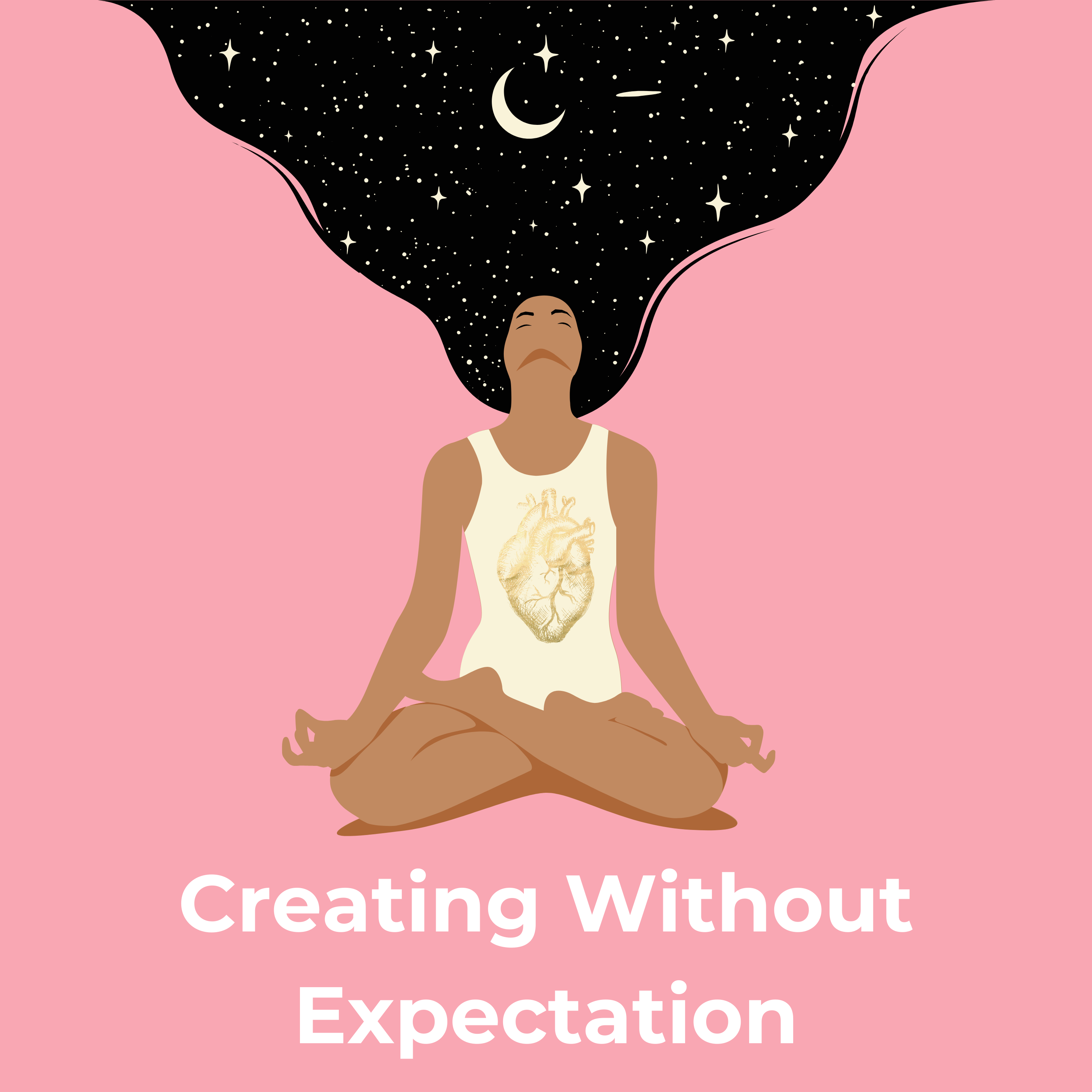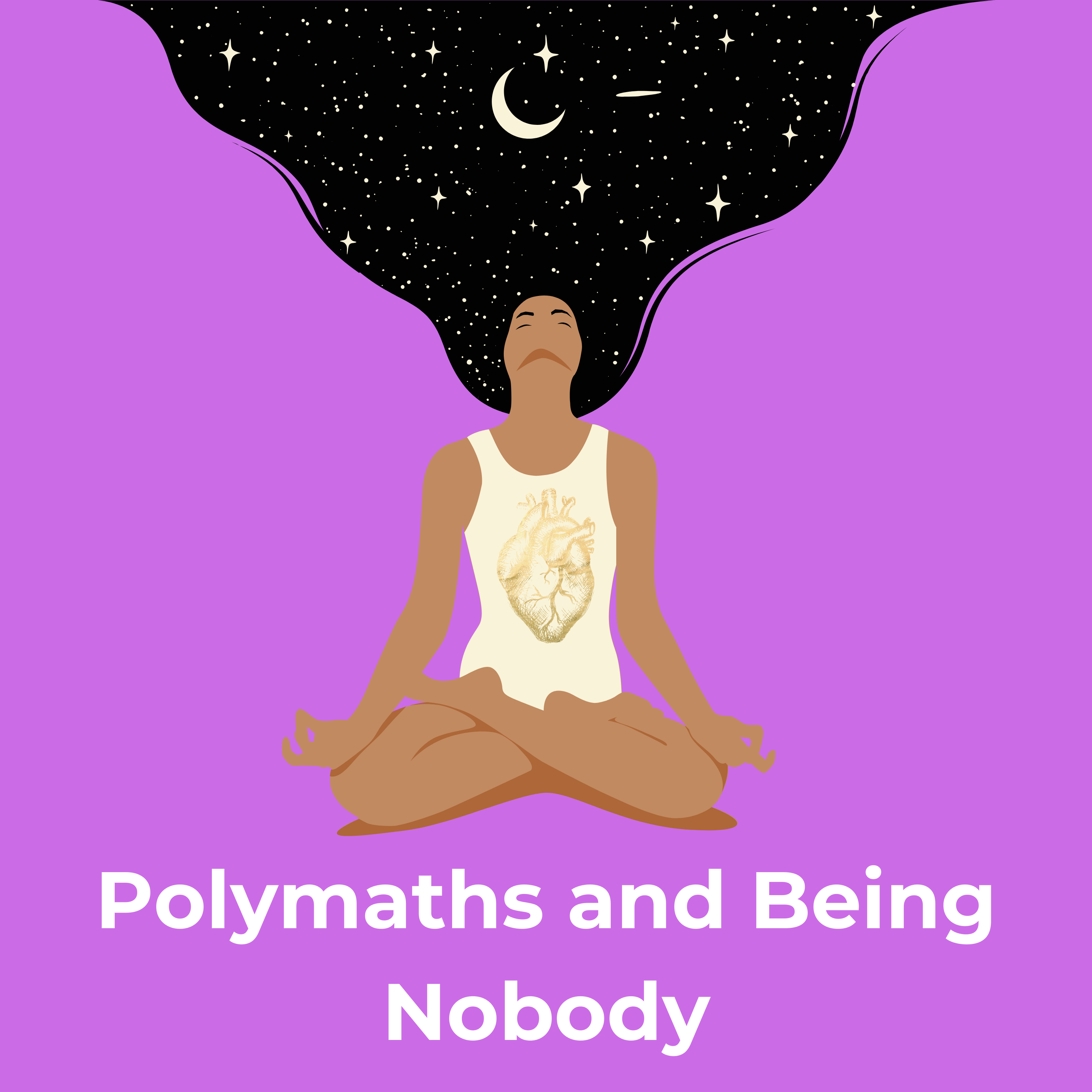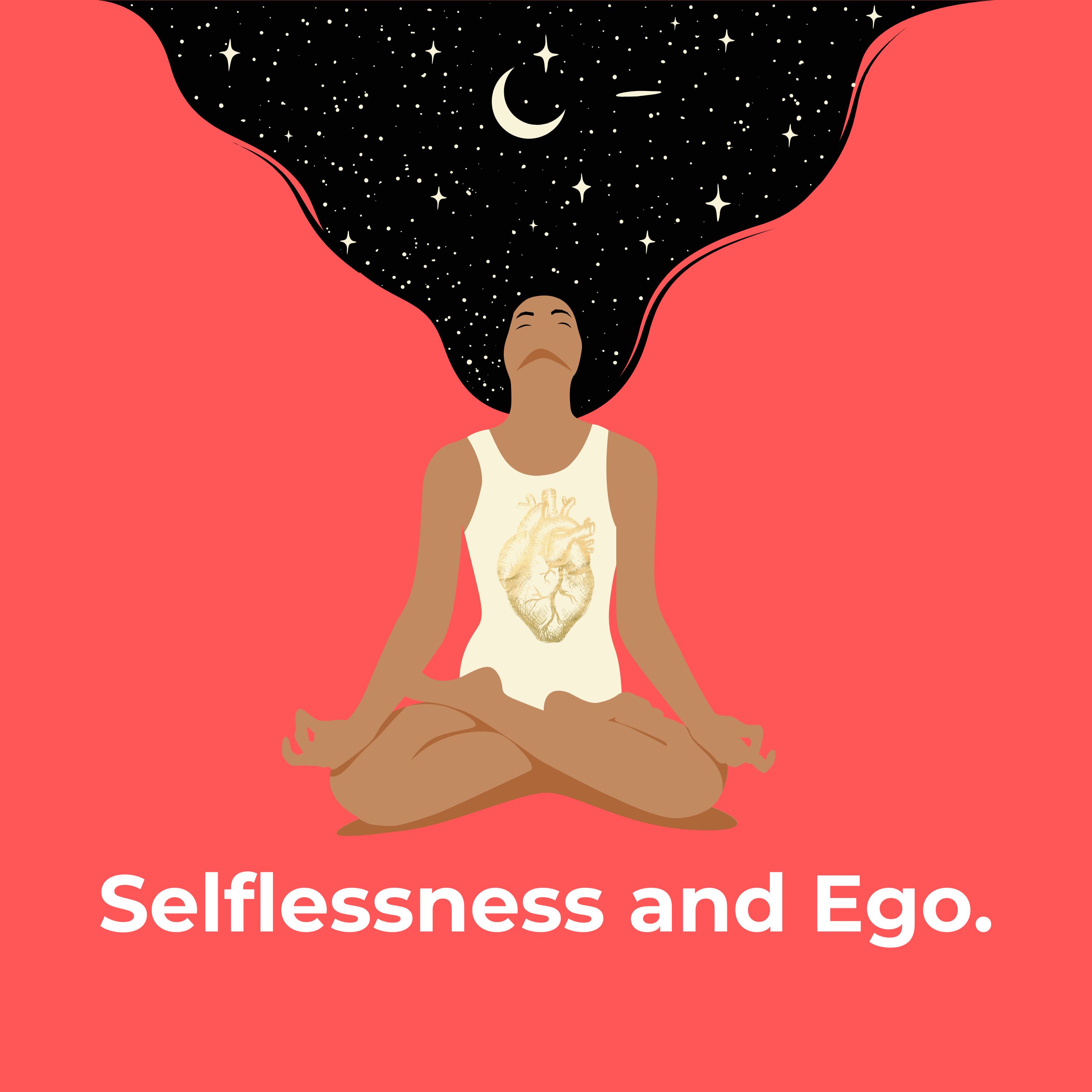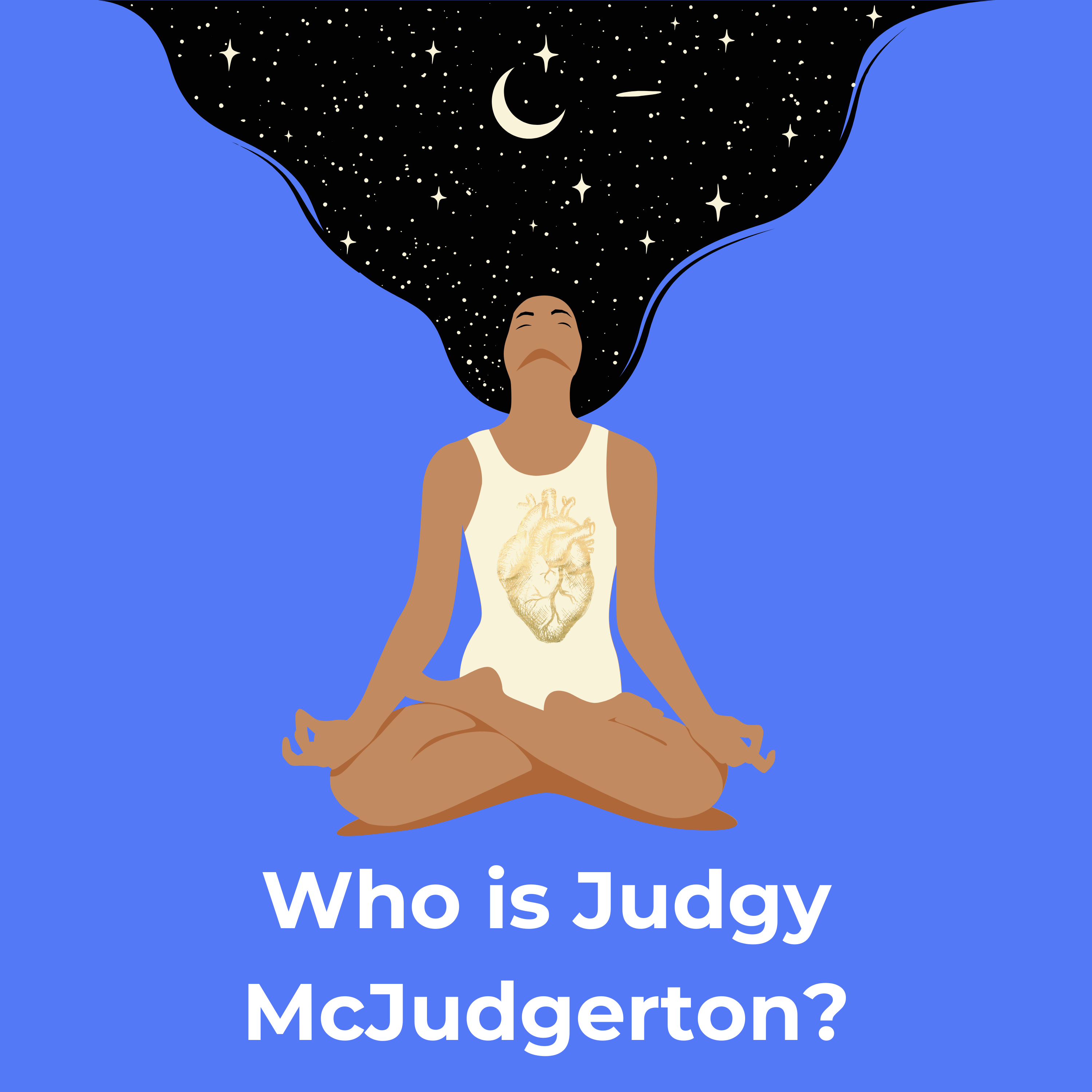Episode Transcript
[00:00:00] Speaker A: The world of healing can be treacherous. But suddenly spiritual aims to provide real, honest, practical spiritual knowledge and wisdom for the true seekers among us.
The goal is to ignite the divine human within each listener, raising the collective consciousness for our planet. We will challenge your preconceptions, push your buttons and encourage deep reflect. We're not here to adhere to the status quo of what the new age spiritual market wants you to buy into and believe.
Consider this your antidote to the woo woo and a place of woo. You.
[00:00:54] Speaker B: So impact how you impact the world. How do you quote, unquote, change the world? I remember I was in this beautiful community in Costa Rica, it's called Brave Earth. And there was this amazing journalist there and she is in her maybe early 70s. And I was just telling her, marnie, I want to change the world. I want to impact the world in a positive way, I want to make it better.
And she just turns to me and says, you want to change the world, but how about if the world changes you?
And I was like, well, I don't know if I want the world to change me.
And she's like, well, the world already has changed you because you live in it. But how can you work with the world to create the impact that the world and communities and people that you love in your life, how they act like, how can you change that impact? So you're not working to just change things without being mindful of what people actually want.
Just being so very western in your thinking of I know what's best, I know how I can change the world, so it's better.
So when you're thinking about your impact, it's important to look at and decipher.
Is the impact again, something that you learned from your parents? Is it something that's influenced by the world around you, of what you're seeing with influencers, political figures? Is that the impact you want to make or is the impact that you want to make more subtle? Is it more nuanced? Is it what your community or what the people around you want? And so it's not catering to those people, but really aligning. It's more about aligning your impact with what is needed.
Because there are places where environmentalism, it's great, but it's oversaturated. What are you doing different? How are you creating a different lens to look at environmentalism, where you are looking at micro problems that have a huge impact? How are you looking at your impact in a way of how does it align with your values rather than just being just listening to what you're told and following suit and basically copying people.
Brave Earth that I mentioned earlier, it was created by numerous people. I believe there's 12 or 13 different stewards from all walks of life.
Very interesting backgrounds. But they don't call themselves a retreat center. They call it a center for cultural transition where they're working to shift the paradigm with post capitalist philanthropy, permaculture and other things. But they're. The lens that they look through is very different than what is in just the spheres that we're looking in now. And many people would think that it's absolutely unrealistic what they're doing, but they are so sure in their impact and they're very heart centered and they're doing something different. That is they're being very inventive and innovative. So did they think it was going to become something? This is for me, when I go to Brave Earth, it very much feels not only like a community and the land itself, working with the land, the spirits of the land, but it's very much a movement to me. Looking at your impact, where did your impact come from? That impact statement, I want to change the world. That's really broad.
How do you want to change the world?
Maybe looking at micro problems in your community, seeing what your community and the people around you really need and want and seeing how you align with those needs, how you can be of service.
[00:05:10] Speaker A: That's a really interesting take. I love, as you were speaking about that, I was completely disagreeing with you in my mind.
And as I'm going through certain things right now, you were talking about creating an impact and I used to be very aware of that because influencing people are influencing outcomes, that sort of thing or having a goal in the outset or perfect example is, you know, when I got asked to create a program at a learning institution, I would sit down and then I go, okay, I have to write all these courses and the goal is when the students finish. Here's the thing. And you know, I run into students a lot still happens to this day and they say, yeah, you know, it really made a difference, blah blah. So I'm seeing the impact of what I did in the past and when I started, sat down and wrote those courses out and said, okay, the person's going to come through, learn this and then these are the skills they're going to have. As I was writing it, I was, that was the goal.
And then I'm running into people who went through the program who are kind of working in the industry right now. And I'm seeing The impact towards kind of the realization of that now, fast forward to now. And this is where I've completely flipped as I've learned through things and I don't think they have to be mutually exclusive. I think there's degrees here. But what I'm finding now is as I shifted to being more of an artist and creating art and then wanting to be successful, so not about impacting people, but looking at recognition as the goal as opposed to impact.
And then I quickly realized, as we talked about in the last episode, about ego and just, yeah, that's completely ego driven.
And as I'm dealing with that, I'm realizing now that having the goal of impacting sort of maybe from an ego place was having suffering happen. Because you have an example, an expectation of, okay, I want to win these awards, I want this many people to listen to this song and blah, blah. And though creating those expectations, inducing suffering, because those are things I can control, but I want it so it's like I can't control that. And then it's suffering. And that's that cycle, that Buddha cycle, the whatever. The cycle is where you, you create this box and you want to change the world to fit your box and it never will. And then suffering happens and then what, what I'm realizing now, so now we're going to come back around to maybe agreeing again with you is I knew you would find.
[00:08:12] Speaker B: I knew, I knew you would come.
[00:08:13] Speaker A: Back, it would come back around. So, so now going through that whole journey in that process, what I'm still doing, realizing now that I don't care about that, so I don't care how many people listen to it, I don't care about that. And I'm creating the art to create the art and then it's just going to be out there and then I'm not worrying about the impact.
So you know, what I'm finding now, Maria, is that, well, people are coming up to me and being affected by it because in the creation and the performance of it, I have no expectation of impacting them.
[00:09:00] Speaker B: Right.
I think you said some really important points that I want to highlight.
I think your students, yes, you may have, you know, you may have taught them very specific skills, but you also imparted confidence and you supported them in a way through their learning so that they have the ability to actually execute on what the knowledge is. So I think it goes beyond. Because you're a natural teacher. That's how I've always seen you. And so natural teachers not only teach the wisdom, but also they Give their students a wide berth for them to make mistakes and the confidence to make those mistakes so that they can learn with their own trials. So I think that that is important to note. So your impact actually goes beyond just what you teach, like the black and white of what you teach. It goes with your energy, and it goes with the ability to help people foster their own creativity also, which you can't teach with a book. It's. You have to embody it. And then the students will come through and see you as the role model and the example because you're the teacher. And then they'll be able to pattern just having a more open mind to their own creativity and their own confidence. So I think your impact is more than just teaching them what the book says. And so you mentioned the ego, and I don't want to go off on a tangent, but this is important to state every human being needs attention to live, period.
And everybody needs attention. There is this paper, Dr. Peter Carnican, I had spent some time with him, and he quoted, I'm going to find out exactly.
It was a guru who actually wrote this paper. I forgot. The guru's name is just escaping my mind. But it's called on attention.
And directionally I'm going to get this quote right, but not exactly. And basically the guru said that. Would you admonish a baby who needed oxygen? Would you say, oh, my gosh, why do you want to breathe? Ugh, that's so selfish of you. The same thing with humans and attention and people need attention. It's when it becomes out of balance.
It could go into the ego places. So wanting recognition, as you said, is very normal. It's very human to want attention, to want recognition again. It's when it becomes out of balance. And then the intention of you, your. Your intention changed on, I'm going to create art for my pleasure, for my satisfaction, because I want to express myself. And the outcome doesn't matter. All I want to do is express myself. I cannot think of a single great artist. I don't think Michelangelo was like, you know what I really want for people thousands of years later, hundreds of years later, to be like, oh, my gosh, Michelangelo, Sistine Chapel is amazing. And, you know, he basically didn't think that way. He didn't think about the accolades. He just was like, I just want to do my thing. I want the Pope to get off my back because the Pope wants me to paint this, and I just want to create. So I don't think any of the great artists had the Intention in mind of. Maybe more modern artists are like that. But the ones that I know and really revere, they weren't thinking about what awards, like how. How big my impact is going to be and who I'm going to touch. They just wanted to create from the center of their being. And creation, I feel, is right up there with love in terms of a vibration.
Creation is what humanity was meant to come and do here on this planet. It is such a primal force to create something. And some people create things that are not the greatest, you know, and then there's people who create things that are amazing, that are beautiful, that inspire people. So I think tapping into creativity is such a powerhouse. And people feel it in your music, people feel it in your teachings. It translates better than just, okay, let me put my Excel spreadsheet together of how many awards I want to get.
[00:13:48] Speaker A: That's really interesting and impactful, as I think about that. And as you were saying that, I was remembering back to my teaching. And I remember the first year I started teaching, it was. I was the expert. Just be quiet, Listen to me. So it was very, I'm up here talking down. I'm the expert, and here you go. And one of the best things that we had there at that school is we had anonymous reviews of the year.
So we did surveys, and it was anonymous, so the students could actually be honest and I wouldn't know who was saying what. And after that first year, I was literally a shot to the ego, but I'm smart enough to know, hey, I gotta respond to this.
So starting in the second year, moving forward, as opposed to me being above or better than the student being the expert, it was. We were both even.
It wasn't about getting good reviews. It was about, hey, they're coming here to. To learn, and the way I was. And that's how I was taught.
And I'm like, obviously, it's a new era. This is not how it works. And then I adopted this. This mantra in my head where I learned early so you could learn now.
So for me, that. What that meant to me is I'm not better than the students. I just got this information a little earlier, and now I'm relaying it to you.
And that has served me. That helped me kind of get rid of. And it was. I can say it was based in insecurity because I was hired to write this entire course. And then, hey, I'm teaching. I'm a college university professor now. Whoa. So was insecurity because I'm the expert. Be quiet. Don't interrupt me. Here's my script. Like, oh, you mean it's, it should be like a back and forth.
Oh, okay. And once I kind of learned that, that I wasn't better and that, go figure this, that I could learn from them.
Oh, wow, really?
So that, that has kind of served me going through and it wasn't a conscious decision, it just kind of came up. Well, back to the new name of the podcast. As my self awareness increased, I just, I realized, yeah, okay, this is me. Like this is the part that, that has no effort and that's kind of leading to maybe the next thing I want to talk about because I'm constantly going through this too with the unknown.
So when I did start teaching and I had that, that was completely unknown to me. So I based my MO When I went to university, which was a different era. So I based everything on, well, I don't know what's going to happen. And a bit of suffering too, because I expected it. I constructed it to be the way I knew it to be when I was a student. So I said, okay, I'm just going to create this whole thing and I want it to be this way.
And there was complete unknown there. And all that stuff that goes into it as far as not knowing how it's going to turn out, creating an expectation of how I want it to turn out. And then in retrospect, now obviously inducing suffering, as I mentioned earlier. But as people are on this journey and finding themselves suddenly spiritual, how should they deal with the unknown and the symptoms of that? Namely the F word.
[00:17:54] Speaker B: Yeah, the F word.
The F word is like sugar. It sneaks into everything.
[00:18:02] Speaker A: And for those of you who don't know, I'm talking about fear.
[00:18:06] Speaker B: So fear and uncertainty.
I think it's one of, I think it's one of the greatest things that people struggle with is uncertainty and the unknown.
And I think there was some sort of list of what do people fear the most? I think the first one is public speaking and then the second one is death. The reason why death is so feared is because it's so unknown.
Very few people have come back after dying. You know, a small percentage of people in the world who have had near death experiences and have come back and have stories about that, but for the most part, people don't know what the other side of death is like. And there's also, of course, the very human fear of pain.
And with uncertainty, it's layered. I feel as though people are concerned with being embarrassed that they didn't know Better.
So if someone makes a decision to be a DJ, let's say, and maybe they practice their DJing skills, maybe they don't. And then they go out and they want to play a show, and perhaps they're terrible, they don't want to be embarrassed by that. So many times the embarrassment is coupled with the fear of the unknown. They don't want to be embarrassed because they don't know what's going to happen. And then they don't even try. They don't even go out there to try. But they also don't prepare themselves by practicing or maybe playing for a few friends or getting feedback, learning from other great teachers.
They just have this idea, well, I'm really passionate about music and I'm just gonna go out there. Or maybe I'm not. So there's the fear of embarrassment, and then there's the fear of making, like the wrong choice.
And then the unknown comes in. Because the unknown is the tail end of those types of decisions. So it can be really, really tricky. The unknown is very uncomfortable. And human beings, from what I have observed and myself and others, is that we're in the Western world, in the United States, we don't like any kind of discomfort. We want to be as comfortable as we possibly can.
Look at our homes, look at our cars. Everything needs to be convenient and comfortable.
In other parts of the country that's in other parts of the world, there's discomfort built into certain things.
So getting really comfortable with discomfort and making small modifications in your life where you're bringing discomfort in. For example, maybe you should fast one day a week. I'm not saying I'm not a doctor, so I'm not recommending that people fast.
But what I have done is I'll fast one day a week just to feel what the discomfort of hunger it feels like because our hunger cues have been so skewed. Or I'll go to the gym, but I won't listen to music that could be really triggering for people and uncomfortable. Finding ways to purposely put myself in the line of discomfort and not making these huge leaps, but doing it incrementally and seeing how I adapt, how I start to become more comfortable with discomfort. I would also say having uncomfortable and honest conversations with other people.
I'm not saying to go again, 0 to 100. But perhaps if someone said something to you that upset you in the moment, like finding a way to have an uncomfortable conversation, just stating honestly, like, hey, what you said really hurt me.
Can we talk about it? Something simple, like something that Maybe even that person didn't realize that they were saying to you, but finding ways to push through discomfort.
[00:22:33] Speaker A: So moving forward, when. When somebody is hopefully recognizing this uncertainty and the fear creeping up, how should they have it or make it serve them as opposed to being an opponent and having it work against them?
[00:22:56] Speaker B: Well, how does the uncertainty serve you?
If you think about the areas of your life and the parts that you don't know certain things or you have uncertainty, how is it actually useful not to know?
You know, are you ignoring.
You actually know, but you can't admit it to yourself?
Because sometimes there are truths that we have that are so deep down inside that we varied them because they're so painful to actually look at. So we create uncertainty around them. So how does the uncertainty serve you? And then how does, like, what is underneath the uncertainty?
Is it something that started a really long time ago?
Were there life circumstances surrounding that uncertainty that created it? Maybe five years ago, you didn't have the uncertainty. And then it. All of a sudden it started.
And then what would it mean to be certain? I do this exercise with people where I take them through a meditation that they go very deep in inward, into this very calm and neutral space. And then I ask them to conjure up what yes looks like for them.
So think of all the amazing things that you love. Like, think of the just the pinnacle of the greatest day ever, the greatest things ever that you've experienced in your life and find what your yes is. What? What does a yes feel like in your body?
Is it in your chest? Is it in your stomach? Is it in your face? Does it have a color? Does it have a shape? Does it have a sound? What does yes look like for you?
And then once that is really honed into a person's body and mind and spirit, then I have them look at what is a no for you.
How does that feel in your body? Is there a sound? Is there a color? Is there a shape? What does a no feel like? And it's so funny because as I'm saying, what does a no feel like? Feel like? My arms and legs are concrete. Like they're so heavy. Because I know that's what it feels like in my body. I know.
And then what does neutrality look like and feel like? What is just kind of no opinion or even ambivalence? Like, what does it look like to not have an opinion, not to go either way, just being in a neutral position. What does that feel like in your body?
And so that exercise is really helpful when you have uncertainty because if you have opportunities that come to you, or maybe you're working through what your life purpose is, when things come your way, is it a yes, is it a no, or is it neutral?
And you can test that through that lens. But also, I would say that when it comes to your life purpose and uncertainty, many times we know what our life purpose is. Again, it's buried. So how do you excavate all the rubble that's on top of the purpose or purposes? Maybe there's more than one. It happens. How do you excavate that? And then how do you come to terms when you do find what the purposes are or purpose is, where there can be disbelief? Like, really, that's my life purpose to, you know, sing and play the guitar, but I'm an accountant.
How does that jive? How does that work with my life?
So really doing some deep soul work when it comes to seeing where the uncertainty comes from? And is it your. Your spirit's way of protecting you from difficulty, from fear? Like, what is. How is it serving? That's what I would say.



